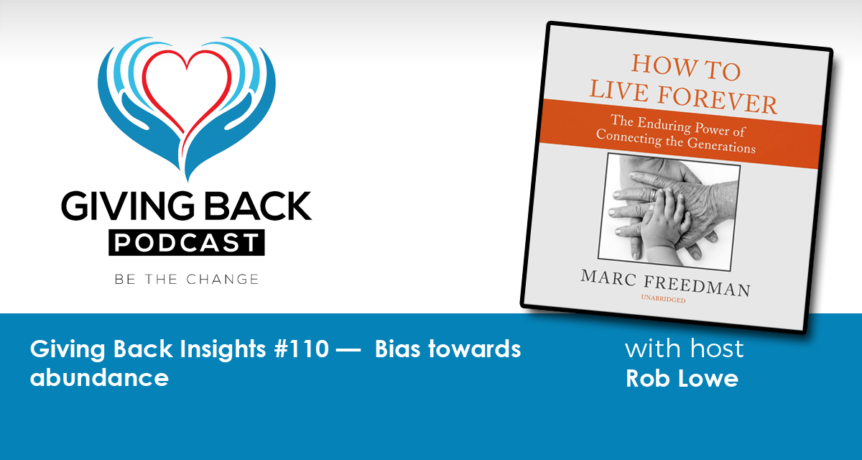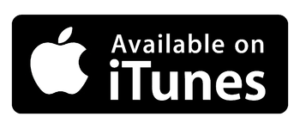A bias is a tendency, inclination, or prejudice toward or against something or someone.
Welcome to the 110th episode of Giving Back Insights! Insights are our solo show to celebrate how our guests and their charities serve others, explore actions each of can take to make a difference in people’s lives and connect.
Today we’re talking about the bias towards abundance! Enjoy today’s episode and keep your comments and feedback coming.
Key Takeaways:
Bias is disproportionate weight in favor of or against one thing, person, or group compared with another, usually in a way considered to be unfair.
Confirmation bias is the tendency to search for, interpret, favor, and recall information in a way that confirms one’s preexisting beliefs or hypotheses. People display this bias when they gather or remember information selectively, or when they interpret it in a biased way. The effect is stronger for emotionally charged issues and for deeply entrenched beliefs.
A cognitive bias is a systematic pattern of deviation from norm or rationality in judgment.[1] Individuals create their own “subjective social reality” from their perception of the input. An individual’s construction of social reality, not the objective input, may dictate their behaviour in the social world.[2] Thus, cognitive biases may sometimes lead to perceptual distortion, inaccurate judgment, illogical interpretation, or what is broadly called irrationality.
Needless to say, I look for evidence that proves I’m on the right path about giving back and the cycle of abundance.
Marc Freedman is the President and CEO of Encore.org, which pioneers innovative programs and sparked a growing movement in the United States and beyond to tap the talent and experience of people past midlife as a human resource for solving our most vexing social problems. I’m reading his most recent book, “How to Live Forever” Besides its provocative title, his book got me thinking on a variety of topics.
One was some research on the outcomes of Big Brother/Big Sister. The impact over just a year is startling: a drop of 46% in drug use, absenteeism cut by 52%, and a reduction of 33% in violent behaviors. That’s negative behaviors. On the plus side, academic measures were all up significantly over those who were not paired with a mentor.
Maria Keller with Read Indeed: AZ projects its incarcerated population by 4th grade reading
Marc raised an interesting point about these results that also resonated with me: 90% of mentors who came to hang out, to have fun, to listen, were still meeting 9 months later. Only 30% of mentors who came to “transform lives” were still in the program. The importance of being present, consistently and persistently, are so clear.
Josh Coombes, DoSomethingForNothing
Orange Sky: the most measure of our impact is the number of conversations we facilitate
John Evoy, Men’s Sheds: the most important tool in the shed is the tea kettle
Mentoring also carried unexpected upside for the mentors: a sense of worth, lower use of pain meds, greater independence.
Clearly giving is a two-way street.
Giving as a “Centerpiece” of their lives (vs “Legacy”)
Which led me somehow to a conversation with Pastor Steve Stone on “anonymity”, or giving anonymously, and the concept of “highest love”
So, yeah, I seek the evidence of the cycle of abundance. The concept of receiving more than I give is uplifting, it’s aspirational as well as inspirational. The people we surround ourselves with are the biggest influence on our behavior, attitudes, and results. I choose to create my world of abundance and fill it with all the evidence I need.
In the words of motivational speaker Jim Rohn: “You are the average of the five people you spend the most time with,”
Remember: Always err on the side of love & kindness.
Love & Gratitude,
Rob
Facebook Live:
Backstage at the Giving Back Podcast Episode 293 Giving Back Insights #110 "Bias Towards Abundance"
Backstage at the Giving Back PodcastEpisode 293 Giving Back Insights #110 "Bias Towards Abundance"Encore.org Marc FreedmanSteve Stone SrJim RohnBig Brothers Big Sisters of America
Posted by Rob Lowe on Monday, January 21, 2019
Mentioned in This Episode:






